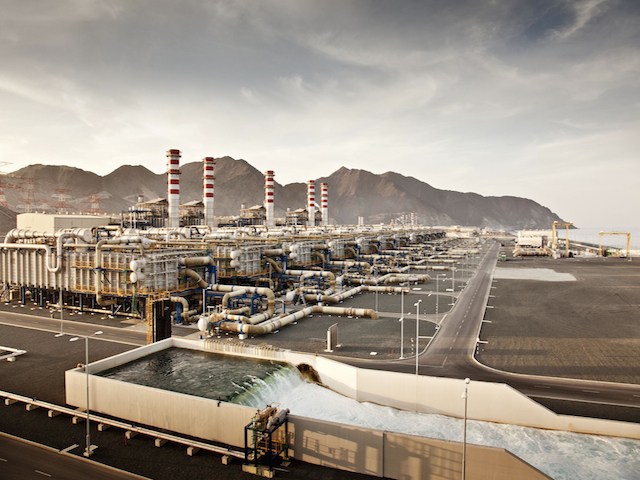
The United Arab Emirates foresees a “correction” in crude prices by the end of the year, and the OPEC member has yet to receive an invitation to a possible meeting of oil-producing nations seeking to rein in a global supply glut, Energy Minister Suhail Al Mazrouei said.
Markets are poised to re-balance as many oil producers outside the Organization of Petroleum Exporting Countries lose money at current prices, Al Mazrouei told reporters Monday in Abu Dhabi. Declining output at fields that need higher prices to break even is “good news” that points toward a more stable market, he said.
“I’m still optimistic that at the end of the year or before the end of the year we will see some correction,” Al Mazrouei said. “We need to be patient. It’s not happening in weeks or months. Correcting to a sustainable price will take time.”
Three OPEC members intend to meet with other producers in non-member Russia on March 20 to renew talks on an agreement to cap oil output, Nigeria’s petroleum minister said last week. Saudi Arabia, Russia, Qatar and Venezuela agreed on Feb. 16 in Doha that they would freeze production, if other producers followed suit, in an effort to tackle oversupply. Benchmark Brent crude prices dropped 33 percent in the last year as OPEC boosted output in a fight for market share with higher-cost producers.
OPEC’s Fourth-Largest
Brent for May settlement increased as much as 78 cents, or 2 percent, and was at $39.23 a barrel on the London-based ICE Futures Europe exchange at 2:31 p.m. local time.
There have been few additional details on the producers’ meeting since Emmanuel Kachikwu, Nigerian minister of state for petroleum resources, announced it on March 3.
“I did not receive an invitation,” Al Mazrouei said. “If they send us an invitation and there is logic, of course the U.A.E. and everyone will participate.”
The U.A.E. was OPEC’s fourth-biggest producer in February, pumping 2.98 million barrels a day, according to data compiled by Bloomberg.
“It’s logical for everyone to freeze their production,” Al Mazrouei said. “It doesn’t make sense for anyone to increase production at the current prices.”